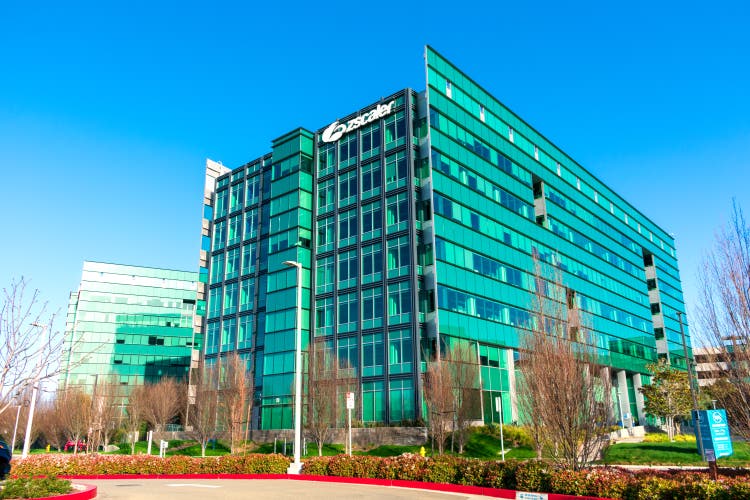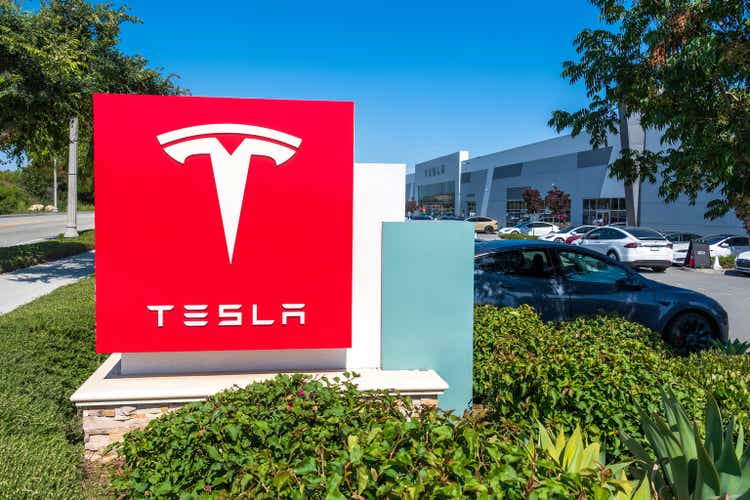- BYD has surpassed Tesla as the EV brand in China perceived to have the best technology, according to results from an annual global EV adoption outlook conducted by UBS. New market entrant Xiaomi, best known for its cell phones, is also rising fast in the eyes of Chinese consumers.
Tesla’s perceived lead in EV technology is under direct assault in China by domestic manufacturers in the world’s largest car market.
On Tuesday, investment bank UBS warned results from its annual global EV adoption outlook suggested BYD has supplanted Elon Musk’s brand as the best all-around choice for buyers—at least in the eyes of Chinese consumers it surveyed.
With its expansive range of EVs sold under two separately themed lines, Dynasty and Ocean, founder Wang Chuanfu’s carmaker has become the dominant force in the Chinese EV market, where it outsells Tesla by an order of magnitude.
“BYD is now viewed as the technology leader,” the report found, “and Xiaomi a fast riser.”
Already neck-on-neck with Musk’s carmaker last year, BYD blew past Tesla in the first quarter and remains on track to exceed Musk’s own as the largest EV brand worldwide by vehicles sold.
BYD’s decision this week to announce deep across-the-board price cuts could further cement its dominance should Tesla refuse to follow the market leader with reductions of its own. The latest weekly sales figures out of China already pointed to Tesla losing ground in the second quarter.
Tesla did not respond to a request from Fortune for comment.
Tesla still favored by consumers considering a foreign EV brand in China
In its report based on a survey of 10,500 consumers across the world, UBS concluded BYD was the only Chinese carmaker likely robust enough to mount a successful expansion into overseas markets.
But it isn’t the only Chinese brand to watch. One of the new rivals expected to cut into both BYD and Tesla’s share is Xiaomi. Last week this mainstay of the consumer electronics industry unveiled in the YU7 crossover, only its second electric vehicle ever.
Yet thanks to its status as a popular mobile handset maker, experts believe it stands a solid chance to poach more Chinese EV buyers away from the competition.
When polled about their top choice, the number of Chinese consumers selecting Tesla fell to 14% from 18% last year, UBS found, and now ranked behind both BYD and Xiaomi.
Asked more generally about preferences among brands, and not just their top choice, it found that Chinese consumers would rather buy a domestic brand over Tesla.
“Although they do favor Tesla over other foreign OEM brands,” it added.
Tesla still enjoys a currently unassailable lead in the U.S.
Europe likewise saw survey participants less enthusiastic about Tesla, with Audi and BMW now more likely to be considered over Tesla.
The only market where Tesla still scored highly is its home turf of the United States, where 48% of potential EV buyers responded that they would continue considering a car from Musk.
UBS saw however a “meaningful” decline of 9 percentage points as the top choice among fully electric vehicles for U.S. consumers. This could be due to a saturation of the market combined with its limited product range, the bank hypothesized.
Mounting evidence of Tesla’s declining appeal as an EV brand globally has not affected its share price, however.
Shareholders already argue EV sales are no longer relevant to their investment thesis going forward. Tesla may continue to make EVs but for the company’s bullish investors their sales to customers are as important to the equity story as Apple’s iPod MP3 player in the moment right before the launch of the iPhone.
“We believe the core focus for investors is the AI revolution,” wrote Wedbush analyst Dan Ives on Friday, raising his price target to $500 from $350 on the back of the market’s recent bullish sentiment.
This story was originally featured on Fortune.com

 1 day ago
1
1 day ago
1














 English (US) ·
English (US) ·